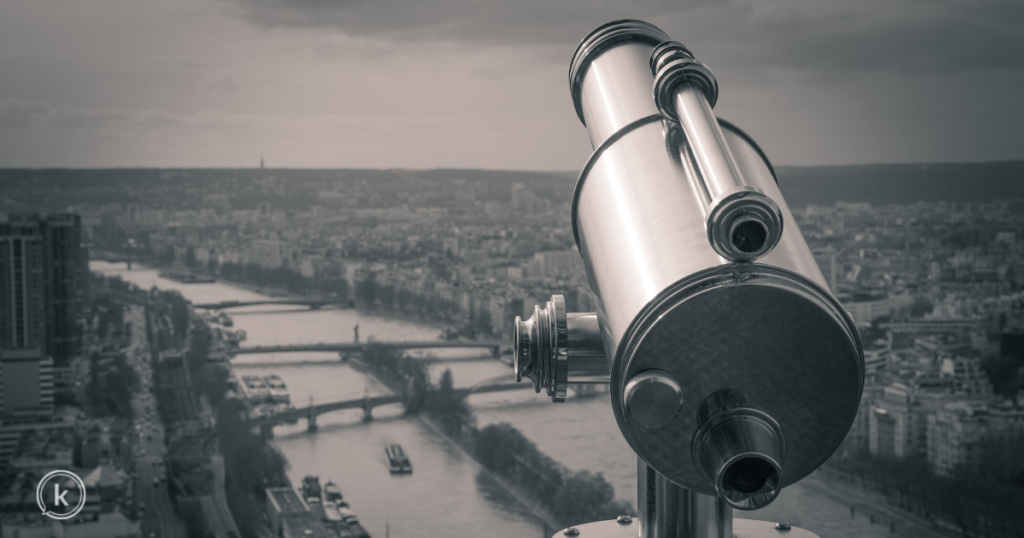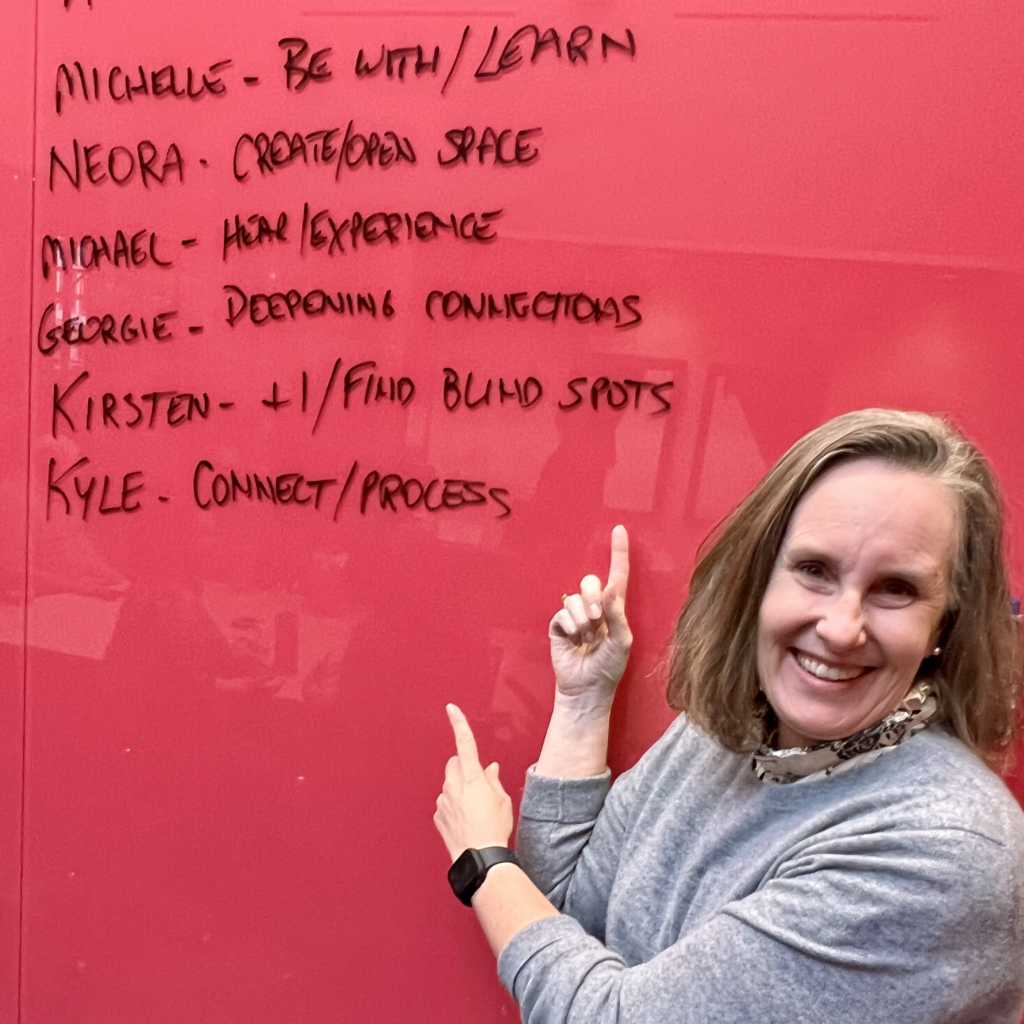The painful (and sometimes funny) discovery of blind spots

When the irony fell on us all at the same moment, we dissolved into gales of laughter.
Fourteen of us sat around the conference room table in Chicago. It was an opportunity to gather with colleagues; most of us had never met in person.
On the first morning of our two-day confab, we encircled that table, sharing what we hoped to glean from our time together. I voiced my desire to identify blind spots in my role as a trainer and facilitator; that desire was written on the glass-covered pink wall alongside the hopes expressed by my cohort.
And then we dug into the work: learning, discussing, asking questions, practicing, and receiving feedback. It. Was. Awesome. I am a better trainer because of the insightful comments of my colleagues. Our day’s efforts were rewarded with a hearty meal and an evening outing. My night concluded in a smaller group, waxing philosophical in oversized chairs in the hotel lobby.
When I made it to my room around midnight, I fell into bed exhausted and wholly satisfied.
But sleep didn’t come quickly. My introverted nature got the better of me after a full day of activity. Like an overstimulated toddler who didn’t get to nap on time, my nervous system was in hyperdrive and I laid awake until after 3am.
When the 7am alarm rang, I was eager to rise because of the goodness I knew the day ahead would hold. And yet my body was struggling with fatigue: I was dizzy and my tired eyeballs weren’t receptive to my contact lenses. So, I wore my fancy new progressive glasses and braved the motion of the elevator, joining the group for breakfast.
Backstory: the week before this trip, when picking up my new glasses, the optometrist told me my peripheral vision would take a while to adapt to the new progressive lenses. For a few weeks, she said, be sure to “look directly at what you need to see because your peripheral vision will be mildly distorted until you adapt.” This turned out to be more important than I realized.
After our first session that morning, we broke briefly for refreshment. Halfway to the restroom, I decided I’d try again to put in my contact lenses and walked back to grab them from my bag in our meeting room. I was looking down at my feet—watching my steps as instructed by the optometrist—as I re-entered the room.
Let me rephrase that: … as I attempted to re-enter the room. Clang! I walked straight into the sparklingly-clean glass door. It was loud. And it hurt. (Here’s the Looney Tunes pre-enactment.) Reeling, I sat down at the nearest table and tried to collect myself. Remember, I was already dizzy—this certainly didn’t help. Everyone graciously checked on me; one brought ice because I already had a growing lump above my left eyebrow and a pressure cut on my nose. And, yes, I was also embarrassed. Who wouldn’t be embarrassed by walking straight into a door?! (But it was funny, so let the jokes rip, friends!) I even left a mark on the glass. 😂
Shortly thereafter I wobbled my way to the restroom and managed to get my contacts in—and made it safely back to our meeting room. The rest of the day was fulfilling and utterly enriching; I gleaned so much from our time together, despite the dizziness, bruising, and injured pride.
At the end of our gathering later that day, we paused to reflect and articulate what we were taking away from the experience. One at a time, each person shared how it met and exceeded what they’d hoped for. When my turn came, we all glanced up at the wall (as we’d done for each of our colleagues) and saw my words: to find my blind spots. The irony was unintentional… and we all were howling in response.
Humor has value in and of itself; laughter is wonderful medicine. Not every story has to have a lesson or a moral. If you take nothing else from this mirthful rendition, I hope it brings you a giggle at my expense. You’re welcome.
But if you care to take a closer look, there’s something of value in my misfortune metaphor: finding our blind spots can be painful. When we lay ourselves open to feedback from trusted friends and colleagues, it might hurt. It might feel a little like walking into a glass door that we didn’t see before, bruising or cutting where something needs to be reshaped in our personal, professional, or spiritual lives. But it’s good and necessary to bring about growth.
The resulting growth is why I recommend my clients video themselves when practicing their presentations. It’s why we commit ourselves to friendships with people we trust to tell us the truth, not just what we want to hear. And, if you’re the praying kind, it’s why we yield to the conviction of the Holy Spirit.
Blind spots are dangerous—literally on the road and metaphorically in every aspect of life. We’re bettered—sharpened, if you will—by purposefully donning corrective lenses to see ourselves clearly.
Just have an ice pack ready.

